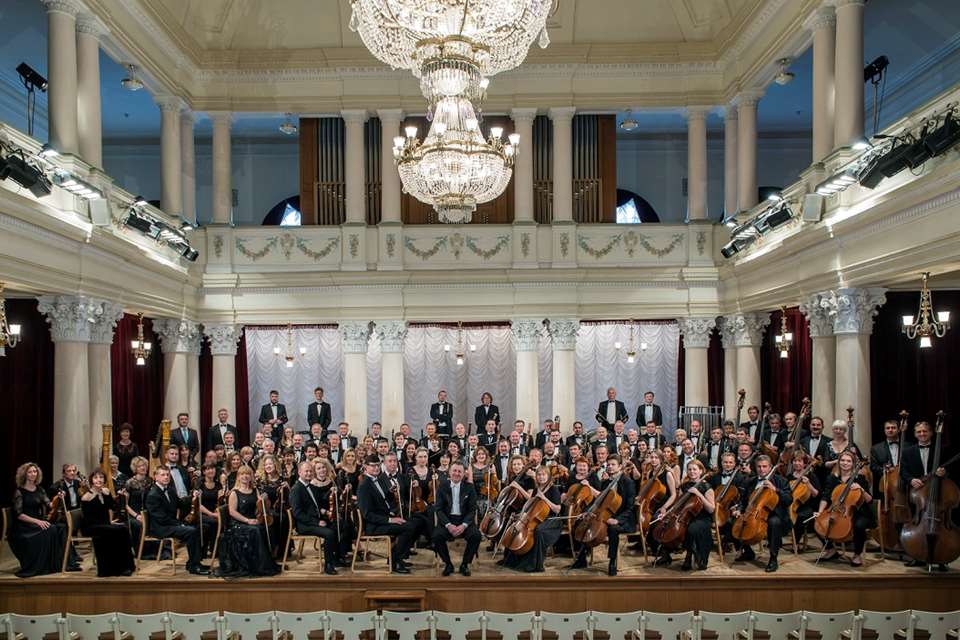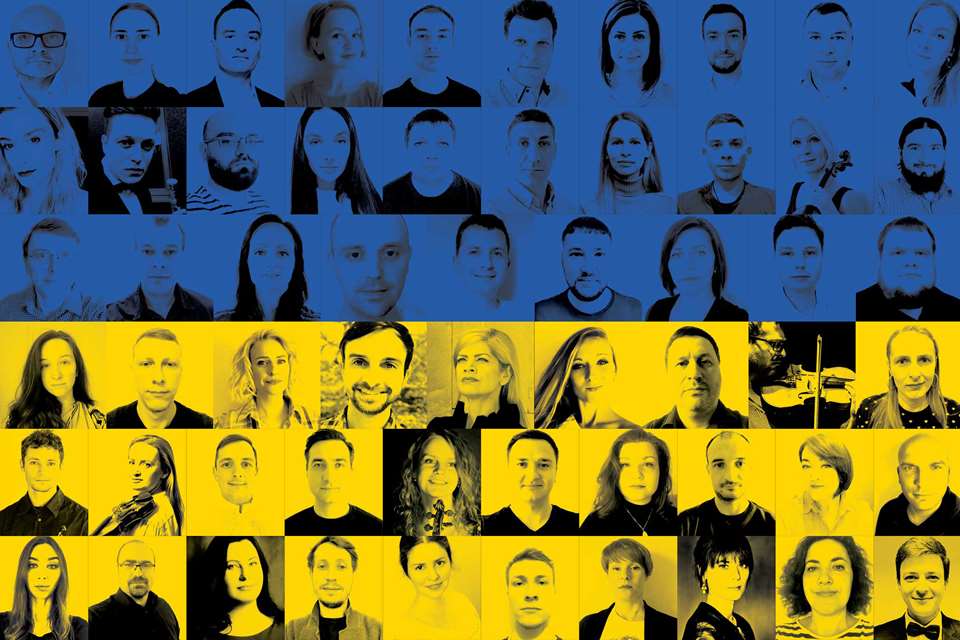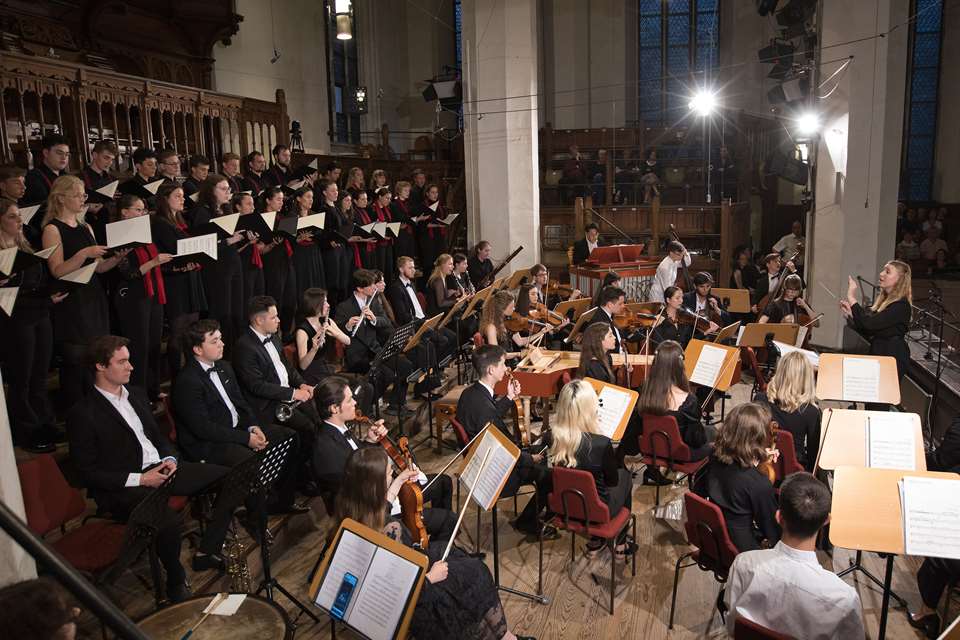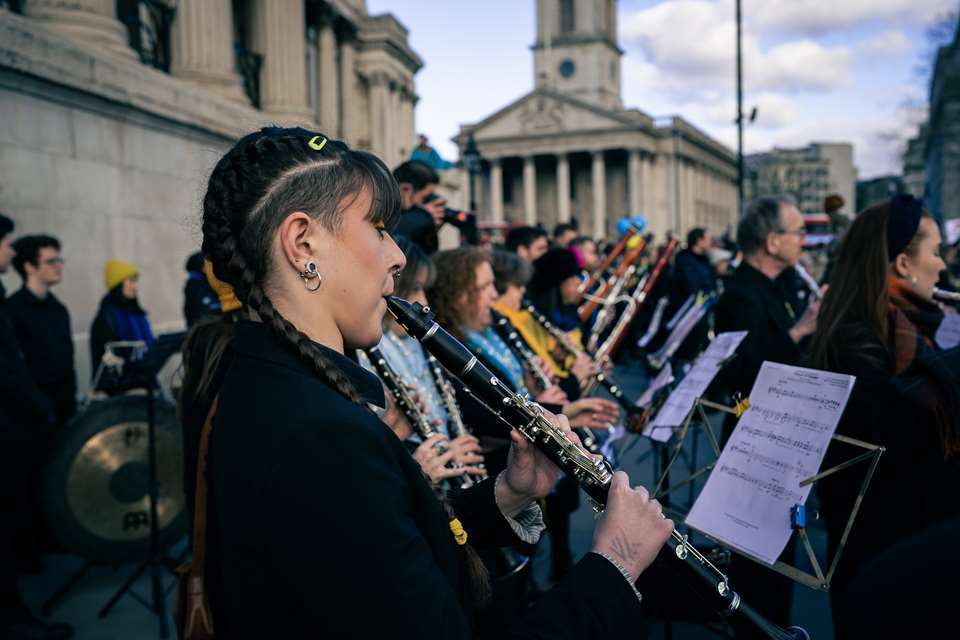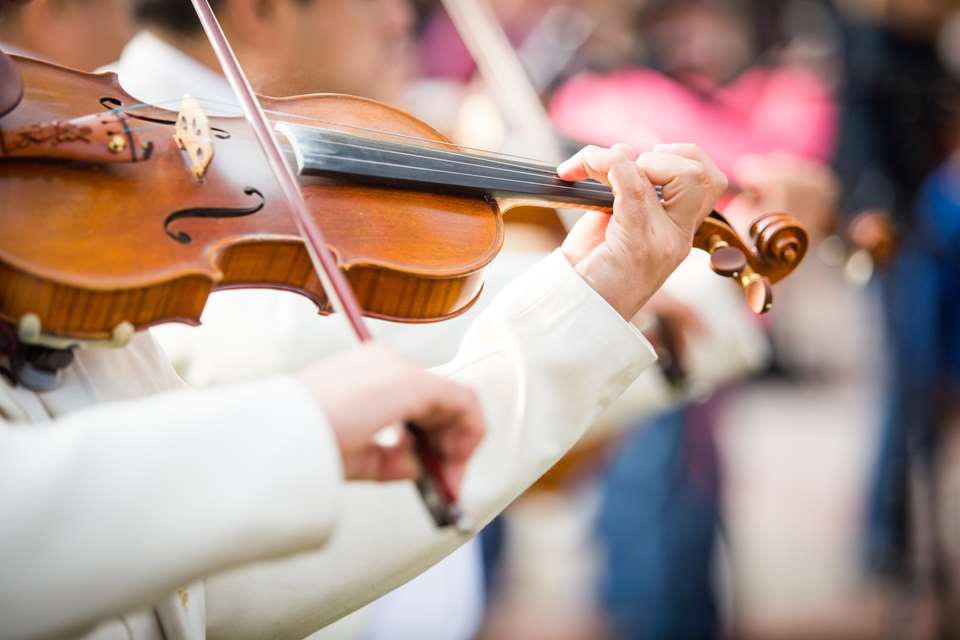Nigel Osborne: The guitar man of Lviv
Susan Nickalls
Monday, December 4, 2023
Susan Nickalls joins the composer and former Reid Professor of Music as he brings music to shelters and hospitals across Ukraine, encouraging traumatised children and soldiers to work through their emotions with song
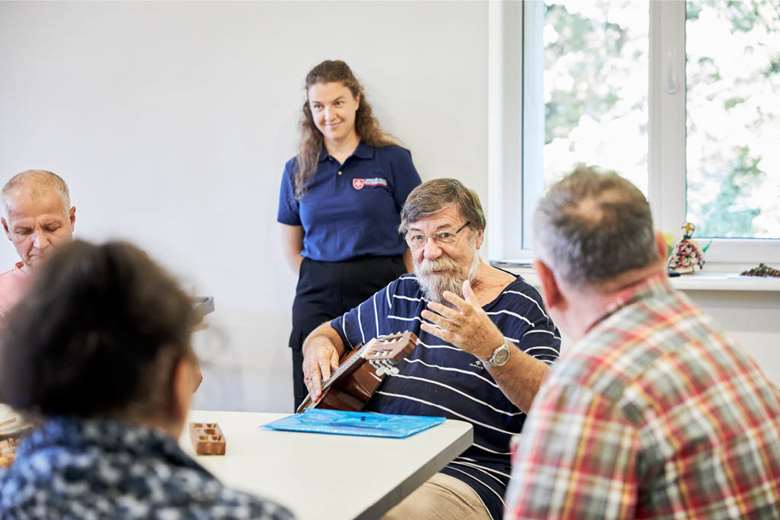
On an unseasonably warm September morning, the children from the Levandivska Street shelter in Lviv are jumping up and down on the sofa in a sunlit room. Even before composer Nigel Osborne could get his guitar and instruments out, they start singing Ukraine’s Eurovision winner Stefania (by Kalush Orchestra) with gusto.
Every month the former Reid Professor of Music at the University of Edinburgh travels from his home in the Scottish Borders to various locations in Ukraine including Lviv, Kharkiv, Kropyvnytskyi and Cherkasy. Working with children and soldiers he helps heal the traumas of war through music, an approach he pioneered during the war in Bosnia and has honed during subsequent conflicts around the world.
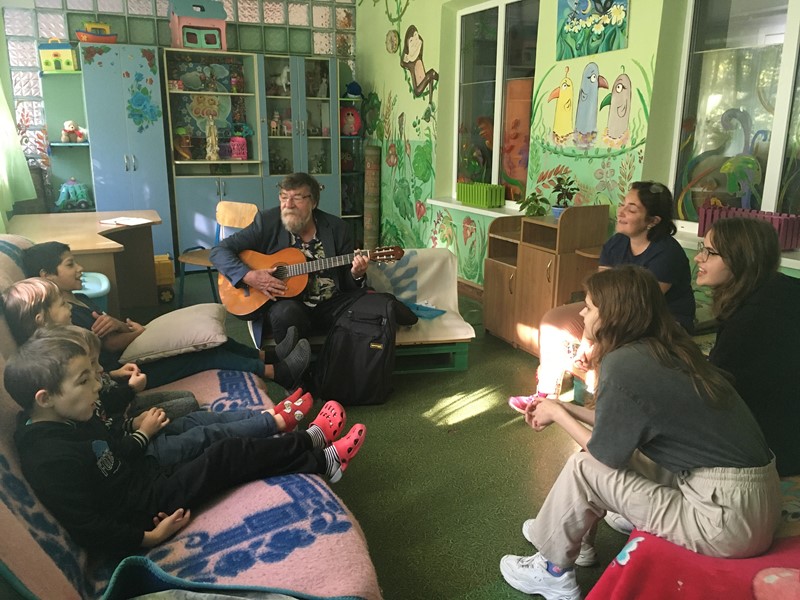 Nigel Osborne leads a music session at the Lvindiyska Street Children’s Shelter with Anastasia Shyroka (to Nigel’s right) and two of her students, Kyseniia Kramar (left) and Solomia Havryliak (right)
Nigel Osborne leads a music session at the Lvindiyska Street Children’s Shelter with Anastasia Shyroka (to Nigel’s right) and two of her students, Kyseniia Kramar (left) and Solomia Havryliak (right)
In Ukraine, Osborne collaborates with the Ukrainian NGO Art Dot, Edinburgh Direct Aid International and universities, hospitals and orphanages. ‘I’m working with pedagogical universities to look at training creative arts teachers in trauma informed care. This is a form of awareness where people can use the skills they already have without having to go through clinical training.’
I joined Osborne on his visit to the children’s shelter along with Anastasiia Shyroka, associate professor of psychology and psychotherapy at the Ukrainian Catholic University (UCU) and two of her students. A multilinguist Osborne has a repertoire of songs from around the world but Ukrainian is always the most popular request. The children sing loudly while also charging around with excitement and Osborne says the use of music can help address their problems.
"The work we do with children is really important as we need to take care of those who will build our Ukraine in the future"
‘Creative arts and sports are the most powerful ways of helping children with the symptoms trauma can cause such as dysregulation of the breath and autonomic nervous and endocrine systems. Music can improve their mood and sense of identity and help them to communicate and express their emotions in a positive way. The children in these shelters are very brutalized and in a high state of hyperactivity and hyperalertness so we use this diagnostically to make things better for the children. What appear to be failures can be also be a success and you have to be alert to that in this work.’
The Levandivska Street shelter also provides the main placements for Shyroka’s students on the Music, Creative Arts and Children’s Mental Health Course which she immediately set up after meeting Osborne.
‘I strongly believe verbal practise doesn’t have the same potential as music in this field. In theory everything works 100%, so it’s important the students get practical experience of those frustrations when the children cry, fight and don’t behave. They need to see how Nigel works and that it’s not so difficult to sing and bring fun and good energy to the group. The students can sing or follow the rhythm, or invent simple melodies or songs which bring children a lot of joy. Music is something special and has a very important message for the children; that they have enough skills to create something beautiful in their lives.’
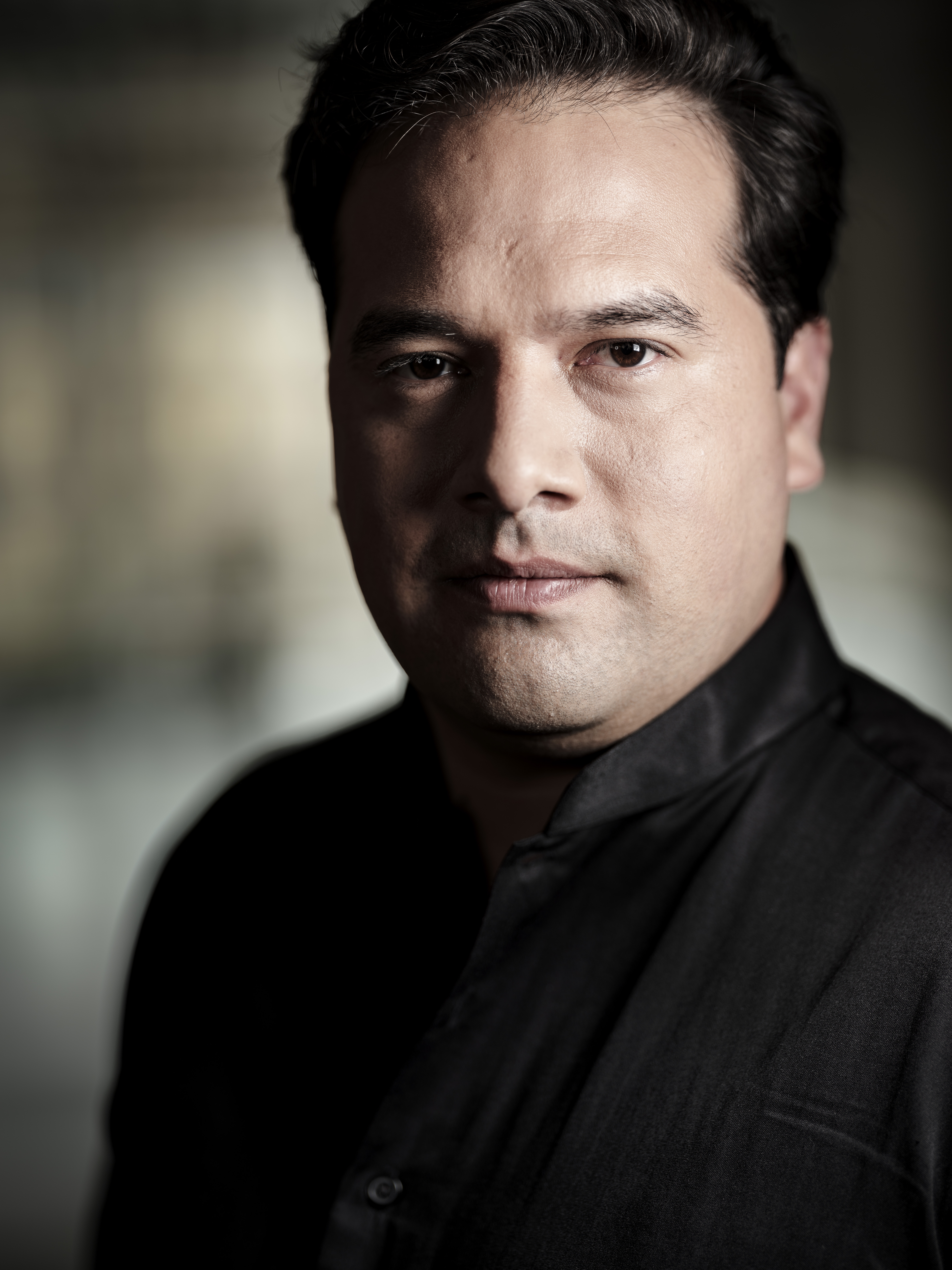
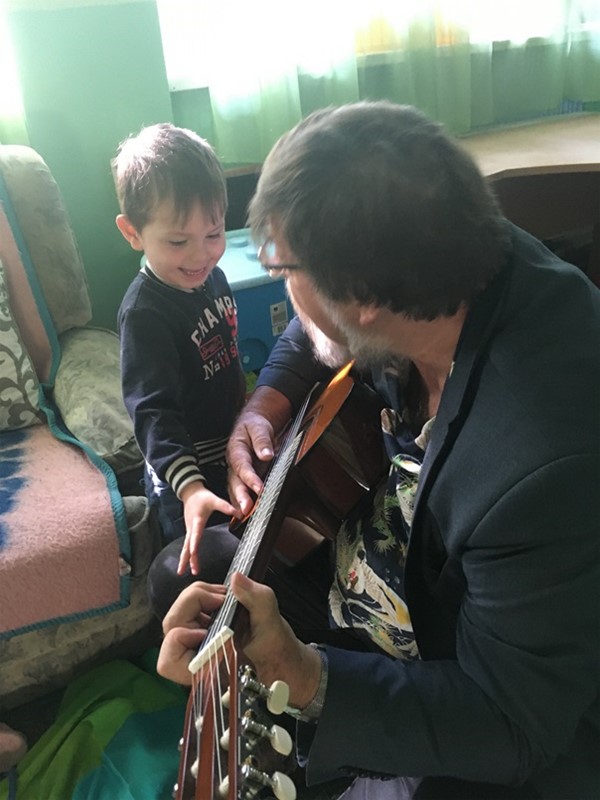 'The children in these shelters are very brutalized and in a high state of hyperactivity and hyperalertness so we use this diagnostically to make things better for the children.'
'The children in these shelters are very brutalized and in a high state of hyperactivity and hyperalertness so we use this diagnostically to make things better for the children.'
When Shyroka’s psychology students Kseniia Kramar and Solomiia Havryliak started the course, they had no idea their studies would take on so much importance for their community and the country. Kramar said, ‘The work we do with children is really important as we need to take care of those who will build our Ukraine in the future.’
Unsurprisingly, what Osborne has to offer is much in demand. On this trip he made his first visit to the Unbroken hospitals, a series of six hospitals including the country’s flagship National Rehabilitation Centre and the children’s hospital on the edge of the city.
Osborne held workshops with the children who have cancer and other long-term illnesses as well as the children with war injuries from bombing and shelling. He always begins in a deceptively simple and engaging way – singing dobryy denʹ (good afternoon) and greeting the children individually by name before getting them to sing, clap or shake percussion instruments. This can be a useful diagnostic tool.
‘We try to help children on their journeys as much as we can. If a child can’t clap in time at a certain age, we know they need neurological help with their perceptions, so we help them to explore sound and to move in time. It was interesting to see that the little boy who was most injured was one of the most cheerful in the group. When it came to writing a song, he suggested it should be about a guelder rose which symbolises many things for Ukrainians. When I asked him about the rose, he said, “The rose is sad.” In spite of his amazing cheerfulness, he was using the song to tell us about his underlying sadness. So music can take us through sadness to something better.’
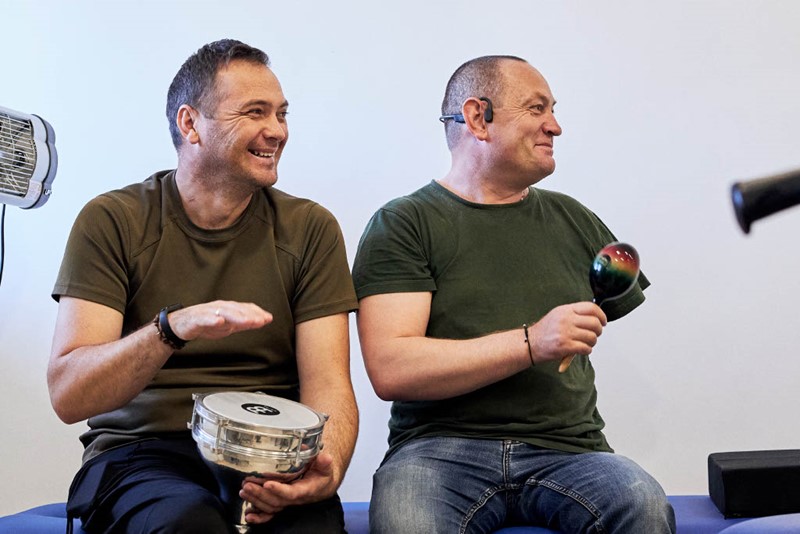 © Malteser Ukraine/Unbroken Brkhovyski
© Malteser Ukraine/Unbroken Brkhovyski
The next day Osborne is back with his guitar and percussion instruments for a session (pictured above) with a group of soldiers – many of whom are waiting for prosthetic limbs. He soon has them singing and shaking maracas. They also write a song together about a dream within a dream. Afterwards, one of the therapists tells Osborne she dreams of organising a drum circle for the soldiers.
"Ukraine is never going to train enough psychologists and psychotherapists to deal with the problem"
‘I think we can make that come true,’ says Osborne. ‘This is a good example of how we can build on expertise that’s already here. With a legacy of Covid and now war, Ukraine is never going to train enough psychologists and psychotherapists to deal with the problem. The solution is in part built into it, in that we have a workforce emerging along with volunteers from the institutions themselves.
‘My hope is to get things moving in Ukraine and to use this model elsewhere including the UK. We have two million children with mental health problems who need attention and are not getting it. Training music and drama teachers to do what they do with a trauma-informed awareness can really help the children. Society isn’t offering this support and trust, so it has to come from somewhere else and music is a good place to start.’
